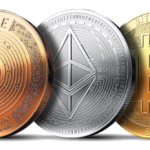Dear Forex Trader, You’ve likely heard the stories about fraudulent forex brokers, right? Well, it’s time to stop hoping you have the “magic touch” and start figuring out if your broker is a scam.
Scam Forex Broker (s) are more common than you think. In fact, fewer than 10% of all forex brokers operating in the market today are actually legitimate. That means that for every decent broker with a good reputation, there are nine others out there who will rip you off.
This is not a problem for regulated markets like stocks or futures. If you get ripped off by a broker on those markets, you can go to court and sue them for your money back. But because forex trading is largely unregulated, your only recourse may be to report the fraud to the authorities where the broker has their headquarters and hope they deal with them appropriately.
If you’re looking for a way to protect yourself against scams, read this article instead of just trusting the first firm you call up.
What does a scam forex broker look like? These are the Red Flags to Unveil Scam Forex Broker.
The first sign of a forex scam is a firm that offers guaranteed profits.
The first sign of a forex scam is a firm that offers guaranteed profits. The forex markets are extremely volatile, and no one — not even a person with a PhD in economics — can consistently predict the direction of exchange rates.
They use high-pressure sales tactics to get you to open an account.
They use high-pressure sales tactics to get you to open an account. A legitimate broker doesn’t need to pressure clients into making immediate decisions about opening an account or making an investment. If they do, they’re hoping you won’t take the time to research them before handing over your money.
They refuse to return your money.
Legitimate brokers don’t make it difficult for clients to withdraw funds from their accounts. If your broker refuses to return your initial deposit or makes excuses for why it hasn’t been returned, consider this a warning sign of possible fraud. It’s all too easy for unscrupulous brokers and firms operating in this industry to prey on unsuspecting investors looking for quick profits. Be wary of anyone who asks you for taxes or additional charges for the withdrawal. Which of course is not part of a legitimate deal.
They have excessive fees and commissions
While it’s true that some trades offer as much as 85% payouts per trade. Such high payouts are possible only when a trade is made with the expiry date set at some distance away from the date of the trade. Of course in such situations, the trades are more unpredictable.
Their website is riddled with typos and errors.
If a company can’t even get basic marketing materials right, what does that say about its attention to detail? Plus, it doesn’t inspire confidence in the legitimacy of their operation if they can’t afford to hire a competent copy editor.
There’s no way to contact them outside of a form on their website.
Without a phone number or email address, how will you contact them? Most legitimate brokers offer live chat on their site, so traders can get an immediate response to questions or issues.
You can’t find them on the regulatory body’s website, or the listings are fake.
A common tactic among fraudsters is to claim that they have permission from a regulator but aren’t listed on their website. Always check on the regulator’s website to see if they’re on there. And make sure you’re typing in the correct address for the site. Fraudsters will sometimes use a variation of a legitimate name in order to fool people into thinking they’re working with someone reputable.
They offer you “bonus funds” to open an account, start trading or deposit some money.
These “bonuses” cannot be withdrawn until a certain amount of trades have been made. Which sounds reasonable at first until you realize that if you lose any trades, your account balance will drop below zero and you’ll need to make another deposit just to get back into the black. They won’t let you withdraw your money or close your account without high fees and long waiting periods.
Conclusion
As you’ve surely learned by now, it’s incredibly important that you find a forex broker that is a real, legitimate business and not just another scam. You don’t want to lose your money to such unscrupulous businesses. But also you don’t want to unnecessarily limit your options by ruling out certain regions. That would be a much worse mistake! All in all, though, the best advice we have for you is to proceed with caution. Research your brokers carefully before you commit to trading with them. This can help prevent a lot of serious problems down the line. Like ending up on the wrong end of a trading scam.





